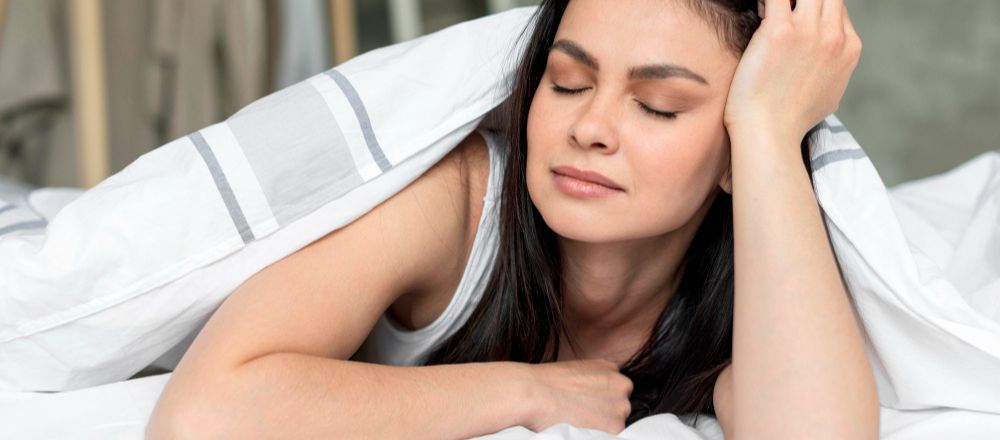What is Insomnia?
- Posted On: April 16, 2024
- Posted By: admin

People who have insomnia struggle with sleep despite adequate opportunities for sleep, and also experience excessive daytime sleepiness. Insomnia refers to the inability to remain or fall asleep. People often refer to sleep deprivation or Insomnia in casual conversation is called “sleep insufficiency” by doctors. In this condition, you will go for a whole night without sleep or sleep very little for one or two nights. It may also be a symptom of another condition. It can be caused by jet lag, stress, anxiety, hormones, or digestive problems. It can be problematic for your overall health and quality of life, potentially causing depression, difficulty concentrating, irritability, weight gain, or impaired work or school performance. This disorder is most prevalent among older adults and women.
Insomnia is usually classified as one of three types such as:
1) Chronic, when insomnia happens on a regular basis for at least 1 month
2) Intermittent, when insomnia occurs periodically
3) Transient, when insomnia lasts for just a few nights at a time
Medications for Insomnia
Before taking any medication for Insomnia Treatment, be sure to consult with your doctor. Medication is a last resort after stimulus control, relaxation techniques, and other CBT-i methods have not been effective at improving sleep for many people. Medications for insomnia fall into several different categories, including:
Benzodiazepines: Benzodiazepines are a class of psychoactive drugs that are normally not recommended for long-term insomnia treatment because there is a high potential for abuse and dependence.
Nonbenzodiazepines: This class of drugs known as Z drugs for short – was created to provide the same relief as BZDs. It helps to reduce the adverse effects and abuse potential. This Z drugs also require a prescription and the DEA has classified them as Schedule IV controlled substances.
Orexin receptor antagonist: Orexins are neurotransmitters in the body that regulate feelings of wakefulness and sleepiness. It is also known as suvorexant acts as an orexin receptor antagonist. It can be used as a sleep onset or sleep maintenance insomnia treatment.
Off-label treatments: Some medications are primarily intended to treat other conditions and may also reduce insomnia symptoms. It also includes certain antidepressants and antipsychotic medications. They may be prescribed in some cases.
How are sleep disorders diagnosed?
Doctors will diagnose a sleep disorder after a physical exam to review your symptoms and testing. Some medical tests can help your healthcare provider learn more about what’s causing your symptoms like blood tests or imaging tests. They will ask you to keep a sleep diary. It is a record of your sleeping habits. You have to make note of when you go to bed, when you fall asleep, and when you wake up each day. A sleep study is a sleep disorder test that electronically transmits and records specific body and brain activities while you sleep. The healthcare provider will analyze the sleep study data to determine whether or not you have a sleep disorder.
Why Is Sleep Hygiene Important?
Sleep is important for both physical and mental health. It improves productivity and overall quality of life. It can also benefit from better sleep, and sleep hygiene can play a key part in achieving that goal from children to older adults. It encompasses both environment and habits, and it can pave the way for higher-quality sleep and better overall health. An overall lack of consistency in sleep quality can also be a symptom of poor sleep hygiene. Having a hard time falling asleep, experiencing frequent sleep disturbances, and suffering daytime sleepiness are the most telling signs of poor sleep hygiene.